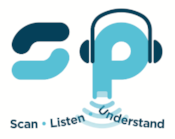How can I support my child with Dyslexia?
Having worked with many many students who have dyslexia, and their parents, I have been witness to a whole gamut of reactions and emotions. All parents are concerned and want the best outcomes for their child, it’s just there are differing opinions on how to achieve the best outcomes. What are the best outcomes? Well this is also up for debate, but for me, a positive outcome is where Dyslexia doesn’t stop the child achieving anything they want to do. I think all the parents I have worked with would agree with this. Again, they may disagree with how this done!
Here are some of the parental reactions I have experience:
- “I don’t want them labelled as Dyslexia or SEN as this will hinder them in their life.”
- “They’re not dyslexic, they are just lazy and need to work harder then there won’t be problem.”
- “They must have TA one-to-one support immediately.”
- “Are you sure it’s not down to poor teaching.”
- “Well actually his/her Dad has it and so does his uncle.”
- “They will obviously now get a statement/EHCP support plan.”
So, taking this into account I would like to pass on my wisdom (makes me sound old) and experience to parents of children with dyslexia:
1. Dyslexia is not a bad thing. There are many many fabulous qualities that people with Dyslexia have as a result of having Dyslexia. Last week was Dyslexia week and I saw many blogs and articles about the positives of having Dyslexia. Google them and read them!
2. It’s not your fault. They don’t have Dyslexia because of something you’ve done wrong. Dyslexia is neuro-developmental condition and not as a result of bad parenting.
3. Your child is not stupid and having the label ‘Dyslexia’ does not mean people will think your child is stupid. Dyslexia does not affect intelligence and anyone who thinks it does is wrong (maybe stupid?)
4. Your child will benefit from knowing they have Dyslexia and knowing how to manage it. Imagine what it does to self-esteem to not be able read as easily as your friends can. You think there’s something wrong with you. Once children know it’s Dyslexia, that it’s not their fault, it’s just their brain works differently, the relief is clear to see. Psychoeducation always improves outcomes.
5. They may not automatically get additional funding or a statement. Dyslexia has levels of severity and affects each person in different ways. Many children with dyslexia have already developed their own strategies to manage the difficulties and don’t need any additional support. Or the difficulties they have may not be severe enough to warrant additional funding.
6. Having a TA to support in class isn’t the best thing. For some parents, having a TA support their child is the holy grail. Something that is viewed vital and necessary. However, this isn’t always the case. Recent studies show that having a TA can be detrimental to progress – academically and socially. Instead you should be looking at ways your child can manage their dyslexia independently. They won’t have a TA when they leave school so by not equipping them for independent learning we are adding extra barriers for them to overcome after leaving school. There is so much assistive technology available, this should be initial go to for support.
7. Don’t judge your child based on the artificial world of education. School isn’t the real world so don’t presume that academic levels/achievement are the only indicator of becoming a successful adult. 40% of self-made millionaires are dyslexic and I bet the vast majority of those didn’t do well at school. Make sure ALL the talents and abilities of your child are recognised. Don’t get caught up in the parenting competitiveness of believing the best parent has the highest achieving child (or indeed the most popular). This isn’t true.
The Frostig Center, Pasadenia, California, has conducted over 20 years of research into the lives of children & adults with SEN/LD. With this research, and incorporating other studies, they identified six success attributes in children/adults who were successful. They judged success as:
- having good friends
- having positive family relations
- being loved
- having self-approval
- job satisfaction
- having physical and mental health
- achieving financial comfort,
- achieving spiritual contentment and an overall sense of meaning in life.
Successful adults with LD/SEN were much more likely to have the following characteristics (and these are more important that IQ):
- self-awareness – open and specific about difficulties and how it affects their lives
- proactivity – actively engaged in the world around them
- perseverance – doesn’t like to quit but does know when to quit, able to try many strategies
- goal setting – specific, flexible goals in all areas of life, understanding of steps required to achieve goals
- using support systems – has received support but has had a successful reduction of dependence on support as getting older; able to cut the ‘chord’; support people understood and supported the moves toward independence
- emotional coping strategies – awareness of situations that trigger stress and how to manage
Further details can be found here: http://frostig.org/our-research/ld-success-predictors/ and there is a guide for parents available.
So, if you are a parent of a child with Dyslexia don’t view it as a negative. It’s fabulous. Your child is utterly fabulous and brilliant way. And if they do become a millionaire remember to thank their Dyslexia that they were able to develop those skills.




